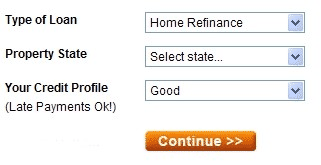Does an electronically initialed loan app entitle the lender to charge a fee?
Here is the question:
T Smith asks:
“Does an electronically initialed loan application entitle the lender to charge a fee if no wet signature is ever submitted? Quicken Loans is charging me $550 based on my electronic initials even though they told me I was under no obligation unless I submitted the wet signature.”
My answer:
T. Smith,
I have warned folks about deposit fees many times here. The short answer is “yes”, they can charge a non-refundable, non-chargebackable deposit or “lock in” fee with initials only.
When they say you are under “no obligation” the question is do they mean no obligation to close the loan or no obligation to pay the deposit?
My guess is they mean no obligation to close the loan. Of course, the answer is in reading their policies. Usually their policies concerning these matters is spelled out on their website or in a disclosure sent to you prior to you authorizing them to charge you.
Remember in real estate or when negotiating a mortgage, “verbal” terms don’t matter…so the real question is, “What Did You Sign/Initial?”
You’ll only know what you agreed to by reading what you signed/initialed. You obviously gave Quicken Loan the authorization to charge your credit card and with that authorization comes a disclosure.
Read that disclosure carefully to discover their rights and yours. You’ll probably find not only can they charge the fee, but you are not entitled to a refund and a charge-back on the credit card will not be granted since that’s what you agreed to when signed or initialed the authorization.
Many lender make this type of disclosure and have the same policy when it comes to taking deposits or lock fees or whatever they call the monies collected at or shortly after loan application.
They are attempting to make sure you are a serious applicant and are not attempting to apply everywhere at the same time. Duplicate applications can cause real problems for lenders.
Can you imagine a world where every borrower put in an application with 5-10 lenders and even went so far as to lock in rates with some but floated the rate with others?
You can only close with one company, so that means nine other lenders are out all the time and hedging money is took to deal with that borrower. Overhead for all lenders would go through the roof!
Of course, you can shop as many lenders as you want, but when it comes to applying…actually filling out a full application…you’d better be sure you have settled on the lender you want. Then you can pay the fees and close the loan without worrying about refunds or chargebacks for monies paid during application.
You can also read my review in my Quicken Loans Review post.
Thanks for the question!
Previous Post:« Are Loans Being Denied At a Higher Pace?
Next Post:


Leave a Reply